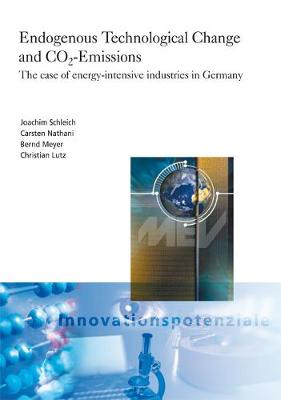ISI-Schriftenreihe Innovationspotenziale
1 total work
Endogenous technological change and CO2-Emissions.
by Joachim Schleich, Carsten Nathani, Bernd Meyer, and Christian Lutz
Published 23 February 2006
What influence do innovations have on CO2-emissions? And how can policy influence this relationship? Macroeconomic models typically used to address those questions do not give satisfactory answers because they assume that technological progress falls like manna from heaven. Under this premise, policy would have no steering role at all.
In this book we develop a new approach which allows technological progress to be modelled as process-related and policy-induced. The choice between limitational production technologies (technological paradigms) is explicitly modelled and is implemented in the macro-econometric model PANTA RHEI for the German steel, paper and cement industries. Our integrated bottom-up / top-down modelling approach allows for a technology-specific analysis of policy interventions and empirically highlights the policy relevance of long diffusion times for new technologies in energy-intensive sectors. Several simulations are conducted for tax, R&D and recycling policies to assess their implications for GDP, employment, emissions and structural change. For example, simulation results for a revenue neutral CO2-tax show that the conventional modelling approach overestimates the costs of climate policy, that effects on GDP are rather small and - because tax revenue is used to lower labour costs - that employment increases significantly.
In this book we develop a new approach which allows technological progress to be modelled as process-related and policy-induced. The choice between limitational production technologies (technological paradigms) is explicitly modelled and is implemented in the macro-econometric model PANTA RHEI for the German steel, paper and cement industries. Our integrated bottom-up / top-down modelling approach allows for a technology-specific analysis of policy interventions and empirically highlights the policy relevance of long diffusion times for new technologies in energy-intensive sectors. Several simulations are conducted for tax, R&D and recycling policies to assess their implications for GDP, employment, emissions and structural change. For example, simulation results for a revenue neutral CO2-tax show that the conventional modelling approach overestimates the costs of climate policy, that effects on GDP are rather small and - because tax revenue is used to lower labour costs - that employment increases significantly.
